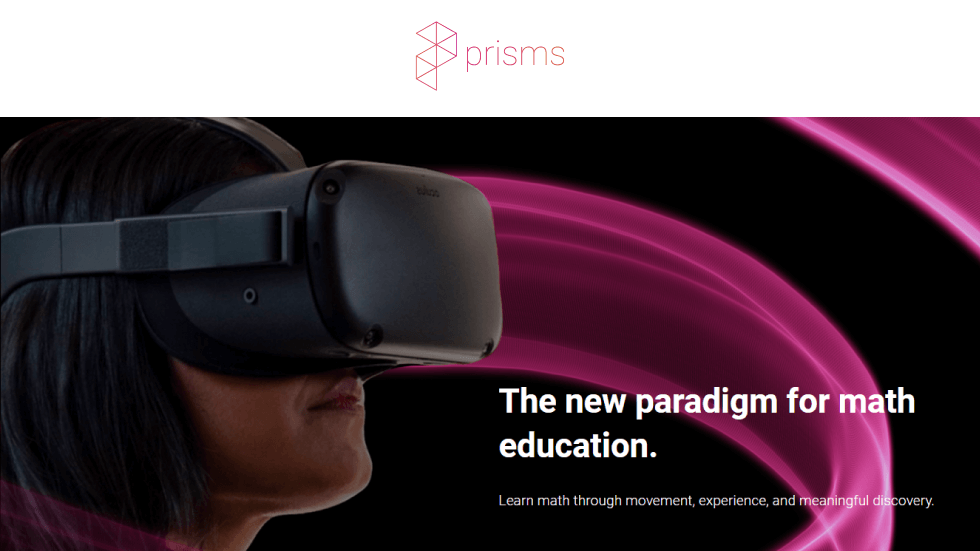Prisms of Reality, a STEM education platform that utilizes virtual reality, recently announced that it has raised $4.25M in a seed round led by A16z (Andreessen Horowitz) to increase its algebra and geometry curriculum into faculties throughout the US.
The round was also backed by additional traders like WXR Fund, Anorak Ventures, Avalanche VC; Nate Mitchell, the cofounder of Oculus; Andrew Sutherland, the founding father of Quizlet; Hans Tung, the managing director of GGV Ventures; and Zahir Dossa, the founding father of Function of Beauty, among others.
Founded by Anurupa Ganguly, Prisms of Reality authentically engage students by immersing learners in current & compelling problems that naturally elicit math intuition, sense-making, and purpose-driven problem solving. It offers best practice pedagogy using immersive tactile environments for students to connect 3D, 2D and 1D representations of core Algebra and Geometry concepts for deep understanding, retention, and lasting standards-aligned proficiency.
Speaking about the company, Founder of Prisms of Reality, Anurupa Ganguly, said:
"One of the highest indicators of success in STEM is the power to spatially cause, or rotate 3D objects in your thoughts and preserve perspective about objects. However, most math-lesson plans rely too closely on memorization and regurgitation, and don’t assist youngsters perceive math and geometry in a spatial context."
Ganguly further added:
"Kids ought to be capable of expertise one thing spatially by doing and shifting, however we have not had the instruments to scale it though academics wish to do it."
The platform's virtual learning agents respond to student thinking with just-in-time feedback during critical moments of struggle using multimodal student thinking data instead of only performance data.
Ganguly constructed her first VR-class mannequin with the assistance of animators and designers on exponential features in algebra, or math issues surrounding exponential development. They created a digital state of affairs where a virus begins to unfold inside an eating corridor, and college students need to calculate the unfolding of the virus.
"I actually basically consider that VR headsets and gadgets are going to be the subsequent Chromebook when it comes to one-to-one adoptions," she said.
The founder believes that proper now, children are coming again a number of years behind in math, and districts are desperately searching for methods to speed up studying so that children aren’t falling into remedial spirals, and there is an unprecedented sum of money within the system.
Chief Executive Officer of CenarioVR, John Blackmon, added:
"Prisms is becoming a member of a small, however rising crowd of VR lesson-plan startups that cater to instructing school-age youngsters by digital actuality. Other corporations embrace the 360-video chemistry-lab simulator Labster or ELB Learning’s CenarioVR, which provides a customizable geography module for social-studies academics.The factor about VR is you’ve a lot larger retention worth than with conventional studying due to the experiential nature of it,” mentioned Blackmon. “It’s the act of doing that is accessing your longer-term reminiscence.”
Currently, over 20,000 college students are using Prisms and it’s appropriate with a number of VR headsets like Pico and Oculus. The crew hopes to develop to 100,000 college students in 65 faculty districts throughout 15 states by this fall.
